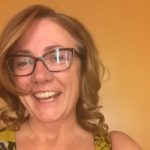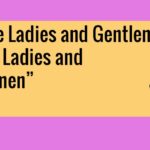Why are you at your desk on Sunday?
This interview with Daniel T. Hendrix, president and C.E.O. of Interface Inc., a designer and maker of carpet tile, was conducted and condensed by Adam Bryant.
Q. What were some early leadership roles for you?
A. I would say that my first real leadership role was with sports in high school. I was the quarterback on the football team, I played basketball and I pitched on the baseball team. I would say that one of the better foundations to be a leader is to play organized sports.
Q. And in your college years?
A. When I went to college, I was a phys ed major. My father kept saying: “You’re not going to make any money. Why are you majoring in phys ed?” So I changed to accounting in my last quarter, and it took me about two years to get an accounting degree.
I got my first real job when I went into public accounting with a major accounting firm. That’s when I met Ray Anderson, the founder ofInterface. In fact, the company was my first client, and it was still a very small company. I joined it at the age of 27. Within a year and a half, I was the C.F.O., and Ray would dump as much responsibility on me as he could. I think I was running customer service, planning, human resources, I.T., financial accounting, treasury, and I didn’t have a clue what I was doing.
That’s when I learned a lot about business. I was in way over my head, but I thought I had to be the smartest guy in the room. I was dealing with a lot of bankers because we did a lot of public deals and were trying to finance acquisitions and so forth. I thought I could outwork anybody. I was working 24/7 and really had two jobs: C.F.O. during the day, then an investment banker at night, in effect, doing acquisitions and deals. Delegation wasn’t really part of the equation because I was afraid that if I gave it to somebody, they would fail and then I would fail.
The company brought in a president above me who was really charismatic and dynamic. One day he was in the office on a Sunday and he said: “Every time I’m in here on Sunday, you’re in here working. I’m not impressed by somebody who can’t get their job done in five days. I’m really not. It’s about balance.” And I had two young kids. He said, “Go out and hire some people and have a life.”
So I started hiring people, developing people, building a team, and I learned that you have to delegate, have to have accountability and have to make sure that people have the tools to do the job. Then you check in — you ask what’s going on.
Q. Obviously that Sunday conversation had a big impression on you.
A. Big impression. His message really resonated: you’re going to burn out if you keep doing this.
Q. What is your company doing in terms of innovation?
A. You have to keep reinventing yourself in this world. Everybody is a fast follower and so you’ve got to find a way to create an innovation environment. It’s all around collaboration. It’s all around engaging the shop floor all the way up to the top. You have to fund, fuel, encourage collaboration and engagement to get innovation, and you’ve got to go inside and outside to do that.
Q. So how do you do that?
A. We developed something called the Innovation Farm. It’s a platform where everybody can participate within the organization, and you can also go outside with it. So you pose questions: How would you solve this problem? And everybody gets engaged in how you might solve it. Or you just ask an open question: What do we need from an innovation standpoint? Then people vote, and the best ideas surface over time as people vote and start tweeting and talking about that idea. It got our people engaged in this whole open-architecture structure.
And we really tried to get out of the box. We didn’t want a closed architecture, because I think we had one to some extent. We wanted to create an open-architecture structure for anybody in the company, and even outside. So we’re going to post questions on the Web. “How would you solve this problem?” Then, if you get something that’s really interesting, you close off the conversation and discuss it further in a smaller forum.
Q. Let’s shift to hiring. What are you looking for?
A. The thing I want to know is whether they are a cultural fit. To do that, we’ve got to talk about their personal experiences, their family. I’m always trying to figure out how much balance they have. What are their real career aspirations? Are they smarter than me? That’s a big thing. I like to hire people who are smarter than me, and I like diversity. I like somebody who can think differently.
And do they get the idea of servant leadership? I think the biggest misfits for us are people who won’t put the company and the vision ahead of their career. If they’re not of that mind-set, they won’t fit with us. One of the things I look for is hard to find, but when you find this person, they’re gold — it’s a person who can see in three dimensions.
Q. Can you elaborate on what that means?
A. When you ask them a question or give them a project, they come back and give you a lot more than what you asked them for. They give you a lot more questions to the question that you asked them, and they see something that’s a lot different in the third dimension.
Then there are the people who are just sort of linear, and you ask them to solve a problem and they give you the obvious answer and say, “Here’s the answer to the problem.”
But I look for that person who thinks on a different level. As I said, it’s hard to get at that in an interview — I haven’t figured out a way to do that reliably yet — but when you find that person, and I’ve found a few in my career, they are gold. They are the people whom you really want to keep and build your company around. They see implications, they see around corners, they see other possibilities. They’ll come up with a different way to think about the problem, a different solution to the problem.
This interview has been edited and condensed.
Through The Grapevine

- Dawn Bardessono, co-founded Benchmark Consulting in 1995, aspiring to combine her passion for the wine business with her expertise in attracting high-quality talent. Dawn oversees and takes the lead on all senior-level searches at Benchmark Consulting, utilizing her prior wine experience in the business and keen understanding of clients' needs to create lasting relationships
Latest Posts
 Careers in WineMarch 10, 2021The Hundred Year Company
Careers in WineMarch 10, 2021The Hundred Year Company Career InsightsAugust 26, 2020Our Focus: Peace of Mind
Career InsightsAugust 26, 2020Our Focus: Peace of Mind HiringMay 6, 2020Now Is an Unprecedented Opportunity to Hire Great Talent…
HiringMay 6, 2020Now Is an Unprecedented Opportunity to Hire Great Talent… Careers in WineApril 8, 2020Ladies and Gentlemen Taking Care of Ladies and Gentlemen
Careers in WineApril 8, 2020Ladies and Gentlemen Taking Care of Ladies and Gentlemen